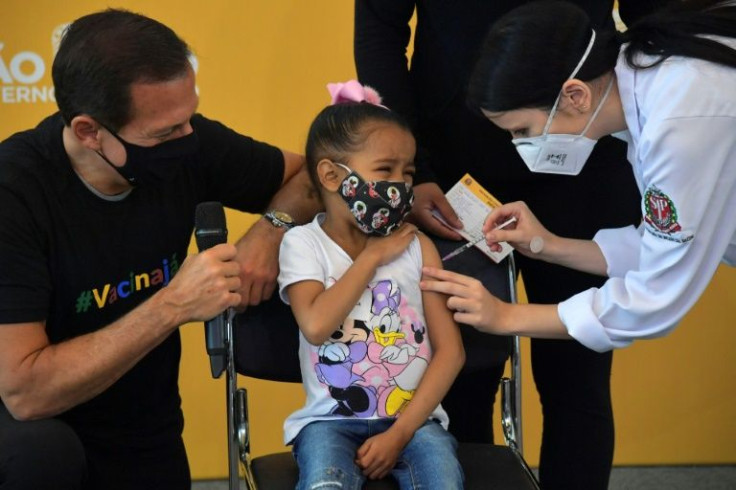This COVID-19 Symptom Could Easily Be Dismissed By Infected People, Study Says
KEY POINTS
- The study was conducted by a group of experts at Stanford University
- The varsity said people should undergo hearing tests if tested positive for COVID-19
- Patients might also have hearing loss, tinnitus or vertigo
As concerns continue to grow about the highly infectious and fast spreading Omicron variant of COVID-19, a study has found a symptom that might have been easily ignored by many people.
The study was conducted by a group of experts at Stanford University.
"Our study showed evidence that the SARS-CoV-2 virus that causes COVID-19 can directly infect the inner ear," Dr. Konstantina Stankovic, an auditory neuroscientist and neurotologic surgeon, who was part of the study, said when the initial analysis for the symptom began in December.
"During the peak of the pandemic, when patients were having more life-threatening complications, they weren't paying much attention to whether their hearing was reduced or whether they had vertigo. It was easy to dismiss these symptoms as just being a coincidence, and routine testing for SARS-CoV-2 was not yet available," the expert said.
"Our study showed evidence that the SARS-CoV-2 virus that causes COVID-19 can directly infect the inner ear," said Konstantina Stankovic, MD, PhD, an inner ear researcher, and chair of the otolaryngology department. https://t.co/IdNO7NrKM6#COVID19 #Otolaryngology
— Stanford Medicine (@StanfordMed) January 9, 2022
Earlier this month, Stanford University said people should undergo hearing tests in case they have been diagnosed with COVID-19. If a patient also has new-onset hearing loss, tinnitus, or vertigo, and has had any exposure to the virus, they should get tested. They must also monitor worsening symptoms with their health care provider.
Stankovic began seeing COVID-19 patients with hearing complaints after the pandemic began.
"We initially focused on determining whether human inner ear cells express the proteins that allow the virus to infect the cells," Stankovic said, according to OneIndia. "This isn't straightforward to do since, under normal circumstances, the human inner ear cannot be biopsied because the organ is tiny and would be irreversibly damaged in the process of tissue biopsy. We're talking about something the size of the upper part of Lincoln's face on a penny."
Other symptoms of COVID-19 include:
- Tiredness
- Runny nose
- Headache
- Fatigue
- Sneezing
- Sore throat
- Night sweats
- Loss of appetite
- Vomiting
Dr. Allison Arwady, commissioner of the Chicago Department of Public Health, said last week that one of the first symptoms observed in people infected with the Omicron variant of COVID-19 was a sore throat. The symptom was often present in breakthrough infections — fully vaccinated coronavirus cases — that were mild.
"Especially in people who we're seeing these more mild breakthrough infections, we are definitely seeing sore throat be a predictor in that group," Arwady said at the time.

© Copyright IBTimes 2025. All rights reserved.





















